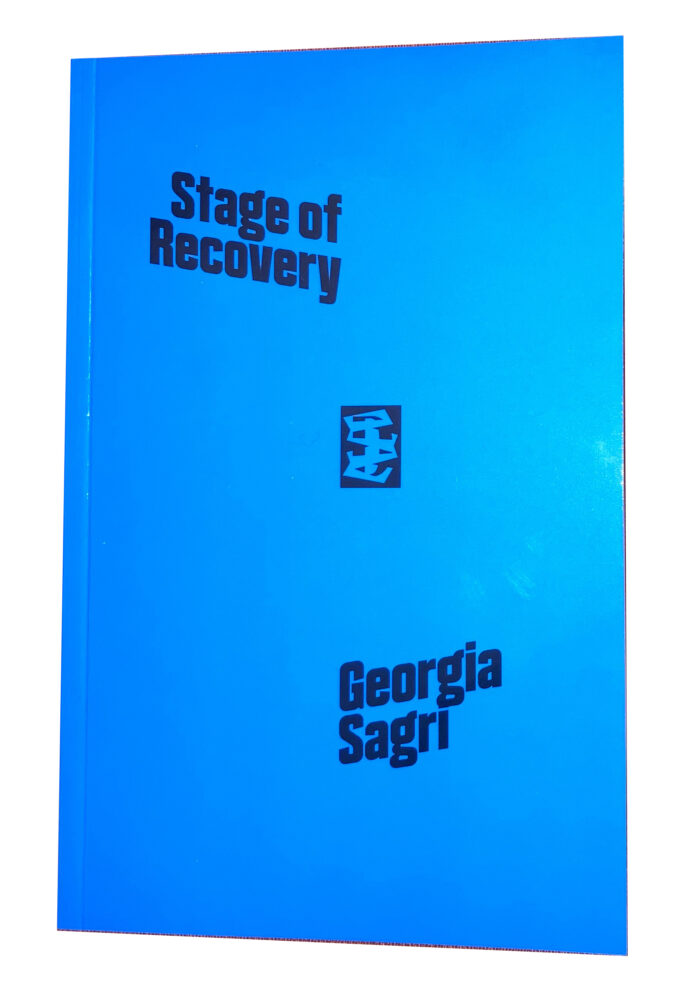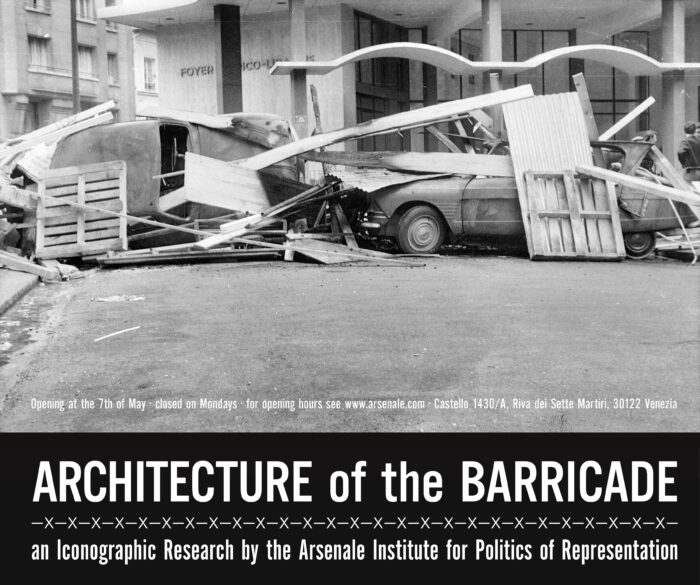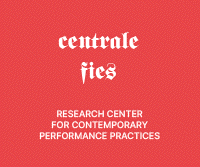Feeling through the Other
If you don’t see me on the street you won’t see me at all
The following is an excerpt from Georgia Sagri’s newly published book Stage of Recovery (Divided Publishing, 2021). Close to spiritual anarchism, Georgia Sagri’s writing happens in the heat of negotiation. Starting in the months leading up to the occupation of Zuccotti Park in 2011, which became the movement for people’s self-governance known as Occupy, this book carries the energy and commitment of open struggle, direct address, self-organisation and public assembly. It is a critique of representation and its implicit oblivion, told through a decade of artistic and activist practice. The writing is a mode of recovery, it is pre-content shared to encourage open processes in art, thinking and action.
This short selection gives a sense of how recovery takes place, from a rumination around the Occupy experience, to the institution that white supremacy is and the avoidance it causes, via an oceanic poem. Although some parts are written years ago, the fervour in their delivery returns the texts to the present.
What is Occupy?
What is Occupy? Occupy is a verb. Some people are thinking of Occupy as some kind of ‘organisation’ with demands. I’m opposed to that idea. Some people are talking as ‘members’ of Occupy, I’m opposed to that. And some people are talking as if they’re working for Occupy, I’m opposed to this as well.
No demands. The connection is Egypt. And Spain. And Athens. And then everywhere. But they’re not the same thing. The connections are like echoes, a shared tempo of ideas and sentiments. It’s not the form that connects them, but issues, issues of living – the economic crisis, which is capitalism in crisis – and the disbelief in representative politics.
In the history of social uprisings, you have a figure, or figures, who create a centre of magnitude, and they bring people together, and then come the social uprisings. But this is the past and we learned what kind of figures these uprisings bring: they bring authority. What happened with Occupy, which is new, is that it underlined, very much from the beginning, that the leader is each one of the participants of the movement. Each person has power, each person is the movement. And that’s it.
For New York, the General Assembly is an action and it is a threat. To take that step – to assemble in public, neither to consume, nor to work, nor to entertain yourself, but to be critical, to meet with others and to bring issues (political, social, everyday issues) into the public sphere and to talk about them openly without fear – is a threat.
The General Assembly awakens this thing: first of all, that there are no individual issues, the individual becomes social the moment they express something in public and receive responses from another. It is the presence of the body, the expression of the voice, the thinking, and the listening, the conversation, and – of course – the organising (self-organising and in groups). The creation of relationships, the creation of affinities, the creation of mutual aid. Those physical and present relationships create the possibility of actualising things together, by creating them here and now.
I was and I am still against any idea of facilitation. The assembly is a module. What I mean by ‘module’ is that the assembly is a spontaneous gathering of people, in public, always under the condition of transformation. Such transformation can take any shape: it can become a march, a kitchen, a riot, etc. All of these are welcomed because they bring something which cannot be predicted by anyone in the assembly and which can immediately actualise the sentiment of its participants. The assembly is not a decision-making body, it is a body. The moment you have facilitation there is the assumption of an end point or a cause, and that makes everyone expectant and does not allow the unpredictable to occur. Of course, if you don’t participate, and you come as a tourist, as a spectator, you will need a committee to tell you what to do, and the assembly becomes just spectacle, trapped in endless bureaucratic procedures. And if you are not assembling and you are not physically present, there’s no such thing as an assembly.
For me, the most important thing that happened with Occupy was, in moments, the feeling of property and individualism breaking. This feeling, which expanded, belongs to anyone – the People’s Kitchen, the People’s Library. The book is not of the librarian, it’s not of the library group, it’s everyone’s. Everyone can take this book and read it – read it and perhaps return it. These were the moments that educated us, therefore we will be able to see them happening and make them happen again.
Letter from the ocean
Dear Mother,
I listen to you carefully, all your concerns and fears
And I repeat to you, if what I do is false
To recognise the possibility in the beauty of light, is the source of joy
To search for light is where the beauty is, when our pain is recognised
The water is sweet
The colours are brighter
My body is awakened
My body is my weapon
Life can be found in peace
Peace is complex
I am in empathy
I am in empathy
I feel
I follow sensation
I follow sensation
The ground is thick
The smell of the ground
Extended branches of unknown plants
Life can be found without asking
Silence is for the privileged
Scream is for the privileged, too
What if I don’t seek
What if I don’t stare
What if I don’t beg
What if I don’t want
What if I don’t need
What is left for us to talk of
But love
Death
How to address violence, how to address specifically the racist violence against identities that the state has decided are targets. It is not isolated. Who would I be not to take responsibility for this death. I need to be attentive, or there won’t be any affective responsibility. Care, participate and feel without pretending this violence is a topic. This is what I meant when I wrote that the trophy terms of the left’s speech become neoliberal. ‘Police brutality’: years ago I wrote that it is becoming a topic and that’s dangerous because we don’t find our own words. It cannot be treated as topical in an NGO meeting. White privilege is looking upon pain as an issue to resolve with institutions and institutionalised language, and not as our reality. White privilege is making our reality into a topic, and not feeling it. I do not mean identifying. White privilege is that people’s deaths become topical, which means abandoning the weight of death. How do I take responsibility, without taking responsibility as a given right. In order to have a right, a status is bestowed by an institution or state, in order to be a citizen with rights. What does it mean to pretend to be a citizen like this? This status of responsibility must be taken by myself, not because it is my right. This responsibility should not come through the process of institutionalisation. It must be taken affectively in the body, because people are dying without reason. Why is it so difficult to speak about pain without the pretext of institutions? Either we have the communal, or we have institutions. Everything becomes institutional or corporate, and if there is no such thing as a common spirit or feeling, then we are done. If the only way to feel something is through what is right, then we have total numbing, complete brutality, objecthood, fascism. One totality. One. Avoidance of pain. I cannot feel as one. I cannot feel if it is not for another. Do you think you can feel through what you have, through what you own? You feel through the other.
*
Now, in the pandemic, we march in the street because we want to have the right to shop and to travel. We are in the street to complain about no shops and no bars. Today I saw people queueing, waiting for the shops to open. Waiting for shops to open so we can feel good and normalise the pain. Working hard to mute the pain, not working through the pain. So there is no information shared. We must open a dialogue with pain, not avoid it, because the pain is information. Stop numbing the pain. We don’t call this white supremacy, but it is. Globally we are going into this perfection of one. We must work through not falling into this insanity. Be attentive. I need to go there and I need to feel it. There cannot be delegation now. There cannot be a substitute for the pain, the pain is a request for attention. This is Simone Weil. And it is the terrain of anarchism. There is no struggle without the recognition of pain. Delegation, evasion and denial resemble addiction (to avoidance). Consumer addiction is now what brings us together; an addiction to amnesia, supplements, distraction, an addiction to not taking responsibility. Accept we are part of the violence that is being created, and suffer from it. How can this responsibility turn into a set of topics for liberals to safely discuss in institutions? How can this insanity have happened? The topics accumulate in order that the violence not be addressed. Instead, we want to fix ourselves and not be part of the violence. Being a nice person does not stop you being responsible. We have to let pain and violence affect us. In delegating, there is perpetuating. Going there and feeling it gives another sense of being in the world. One that is normally found in spiritual texts. It is crucial to understand this book as being part of the violence, and affected by this violence. How can we begin to recover if we do not accept that we are responsible for this violence? Instead we delegate and accumulate to shore up our status, this is the heritage of white supremacy. For Weil, change in someone means change in the world. It’s not about finding out who did the violence, but knowing that it was us.





